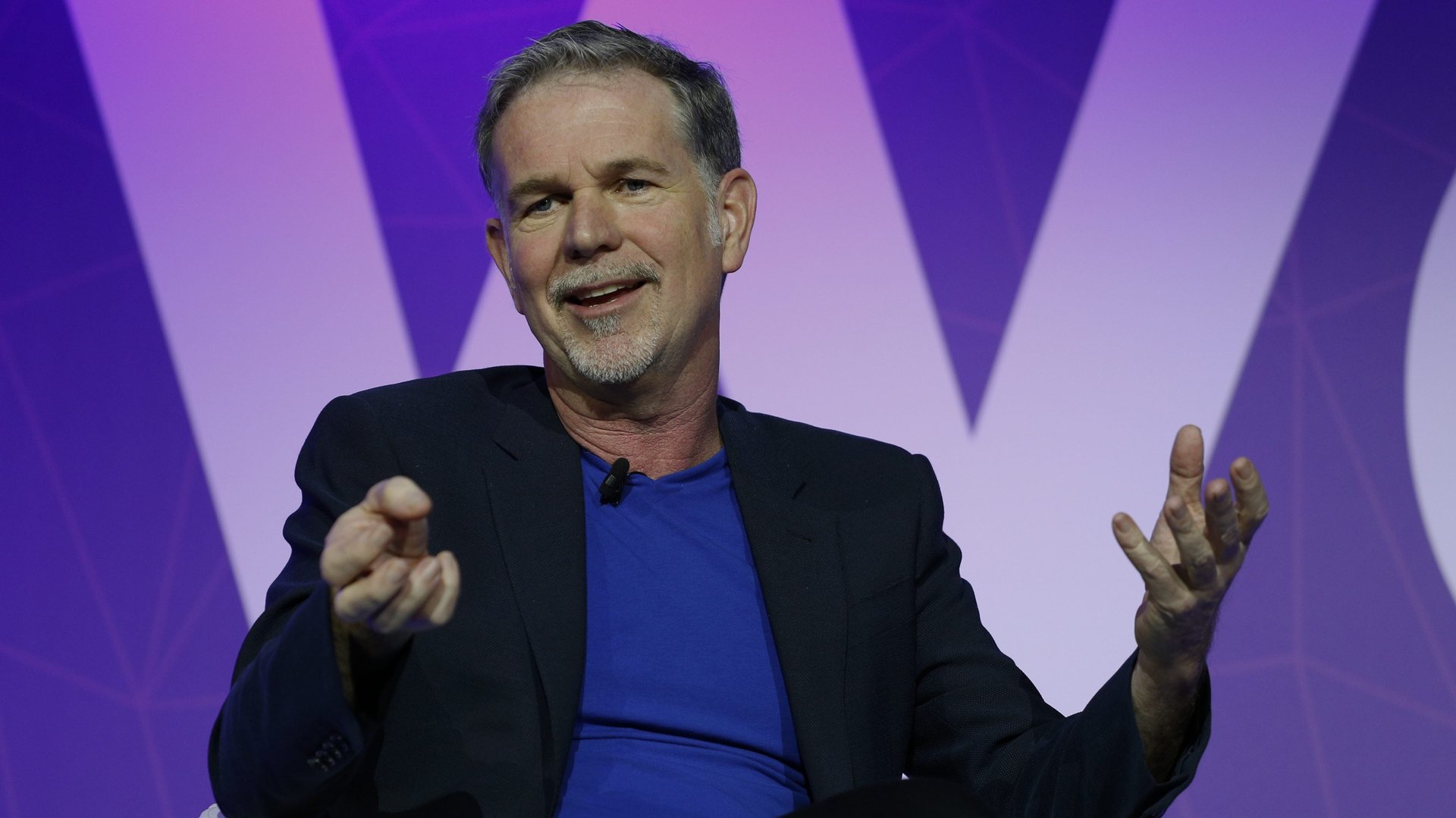In 50 years, Netflix’s CEO suggests, its customers might be AI rather than humans
Netflix’s Reed Hastings is always looking to the future. The CEO spotted the shift to streaming video early on, and his TV-and-video rental service was a pioneer in the transition. The tech company is still preparing itself for what’s next—whether it’s virtual reality or a Matrix-like pill with which one could hallucinate entertainment.


Netflix’s Reed Hastings is always looking to the future. The CEO spotted the shift to streaming video early on, and his TV-and-video rental service was a pioneer in the transition. The tech company is still preparing itself for what’s next—whether it’s virtual reality or a Matrix-like pill with which one could hallucinate entertainment.
At Mobile World Congress in Barcelona, the chief executive was asked to speculate over what could be coming in the next 20 years. By that point, Hastings said, ”you’re starting to get into some serious [artificial intelligence]. Over 20-50 years, there’s a lot of debate around what happens to humanity.” Will humans be augmented with AI, he wondered, or will pure AI take on humans?
“It’s tough to think about entertainment,” Hastings said, “when I’m not sure if we’re going to be entertaining you or entertaining AIs.”
That may seem like an extreme viewpoint—even for a Silicon Valley CEO—but consider the fact that machine learning already dictates a lot of the entertainment we consume today, especially in streaming video. Algorithms decide which Netflix shows and movies we’re served, and recommendations have gotten more personalized to help viewers sift through the enormous amount of content out there.
YouTube, which announced yesterday that users are now watching more than 1 billion hours of video a day, reached that milestone mainly because of AI, the Wall Street Journal reported (paywall). In 2012, the company reportedly starting building algorithms that offered users custom video lineups to keep them watching longer, based on their user data. The volume of daily views rose tenfold since then.
But at a certain point, when algorithms designed to represent our behavior are dictating our consumption, the real-life viewer—you—might start to get lost. That could be what Hastings is driving at here, as Inverse pointed out. Would entertainment be tailored to the person, then, or to the AI?
Or perhaps Hastings just watched too much Westworld and is planning for AI bots that may one day be life-like enough to have their own Netflix accounts.